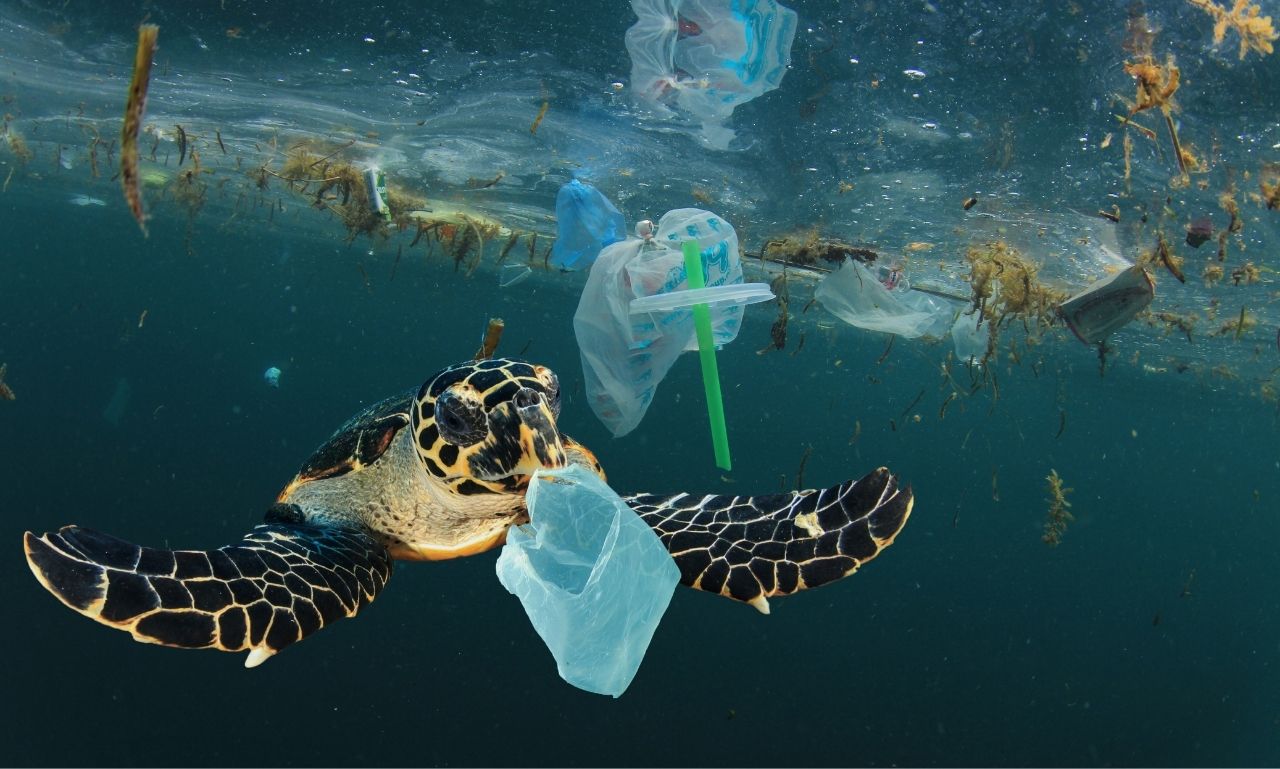

Plastic has been a concern for centuries. The non-biodegradable substance has choked many lives and made its way to human guts. It got climate activists to lose their sleep over the well-being of humankind on earth and its flora and fauna. But now, we seem to have a breakthrough; the FAST-PETase enzyme.
We now have a new enzyme that makes plastic biodegradable at a speed of hours to days. A group of chemical engineers and scientists at The University of Texas at Austin has worked together to invent this enzyme, which dissolves plastic the way a dry leaf would dissolve in compost.
On April 27, 2022, Nature published an article informing us how we have finally overcome our struggle with plastic, hands down the world’s biggest pollutant. Tons of plastic waste form landfills, and unregulated waste pollutes land and water, which can now be countered using this enzyme.
This invention helps industries reduce their environmental impact, saves natural life from plastic toxicity, and our planet from harmful radiation. For Professor Hal Alper in the McKetta Department of Chemical Engineering at UT Austin, the application of this new solution is tremendous.
He further adds that “beyond the obvious waste management industry, this also provides corporations from every sector the opportunity to take a lead in recycling their products. Through these more sustainable enzyme approaches, we can begin to envision a true circular plastics economy.”
The research was conducted on polyethylene terephthalate (PET), constituting 12% of global plastic waste. This polymer is used in consumer packaging, and the enzyme could break down or depolymerize to repolymerize in a “circular process.” The process consumed as little as 24 hours.
This new plastic treating natural enzyme has been treated by a machine learning (ML)model designed by the researchers at the Cockrell School of Engineering and College of Natural Sciences. The treatment has helped develop PETase, allowing bacteria to degrade PET plastics.
The ML model identifies mutations in the enzyme that can quickly accomplish the goal of depolymerizing post-consumer waste plastic at low temperatures. All 51 post-consumer plastic containers constructed from PET and five polyester fibers found FAST-PETase (functional and active, stable and tolerated PETase) enzyme effective.
Professor Andrew Ellington in the Center for Systems and Synthetic Biology, who developed the ML model, said that this work demonstrates the power of bringing together different disciplines, from synthetic biology to chemical engineering to artificial intelligence.
According to the United Nations Environment Programme (UNEP), “Since the 1970s, the rate of plastic production has grown faster than that of any other material. If historic growth trends continue, global production of primary plastic is forecasted to reach 1,100 million tonnes by 2050.”
Biological solutions are the way to combat the ferocious growth in a non-energy intensive way that doesn’t make the breathing air toxic. Although this plastic-eating enzyme has been in research for the past 15 years, it couldn’t be figured out how to produce enzymes at low temperatures to make them portable and affordable on a large industrial scale. With the advent of FAST-PETase, the energy requirement is below 50 degrees celsius.
To prepare for industrial and environmental applications, the team intends to work on increasing enzyme production. An application for patent protection of the FAST-PETase enzyme has been filed by researchers who plan to utilize the technology in various ways. One of the most obvious ways to reduce waste is to clean up landfills and green enterprises that generate a large amount of waste. However, environmental cleanup is an important potential application as well. The team is considering various methods for distributing enzymes to polluted areas.
Dear Reader,
First, thank you for your precious time reading the stories (without paywalls) I publish on Startups to Enterprises covering the EU, China, the US, and India. Second, I request you to contribute financially (any amount) to help me sustain this as an independent digital business news media.
If I receive a request for a sponsored post, I ensure I see merit that is meaningful for erudite and informed readers like you. In the bargain, I lose out on sponsorships wherein I need funds to sustain this effort. Your contribution helps me stay afloat.
Please note that your contribution is treated as revenue generated and not a donation; hence, there are no 80G or other donation certificates. In fact, as I am eligible to pay for the revenue generated, I will pay taxes on the same.
You deserve to know that I abide by journalistic ethics and practices to ensure I tell the stories as is, unbiased. You can follow us on Facebook, Linkedin, and Twitter, bookmark us on Google News, and finally, PayPal us here.
Founding Editor
Linda Ashok

